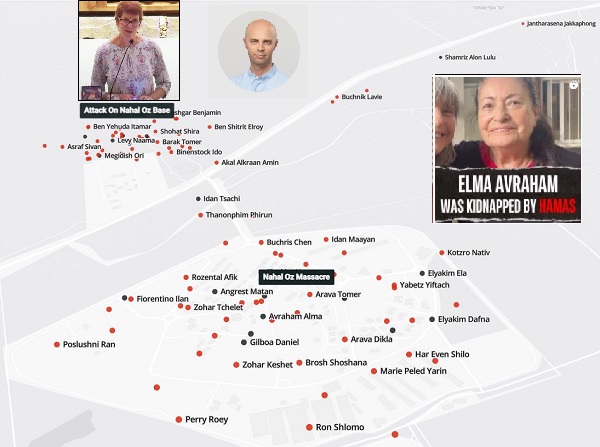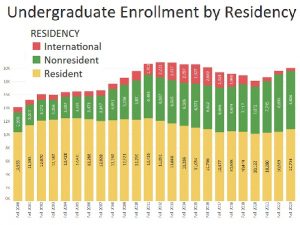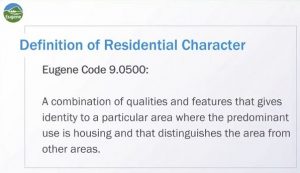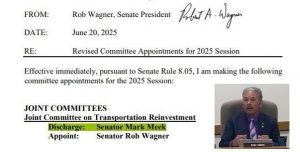Eugene resident born at Kibbutz Nahal Oz shares her parents’ Oct. 7 experience
13 min read
Eugene resident Ronit Cohen was born and grew up in Kibbutz Nahal Oz. Her parents, Sara and Yankele, were among the founders of what was the first settlement near the Gaza border.
Ronit Cohen: It’s a farming community. They have fields of cotton and potatoes. The boys usually used to work in the field, the girls usually worked at the children’s house with the younger kids, where we spend the afternoon, so twice a week after school.
[00:00:30] When I was about 15 or so, I worked a couple of years at the dairy, milking cows and feeding cows and those kind of things. They have a very successful dairy. And, in more recent years, they have avocados and bananas and they used to have orchards of apples and almonds.
[00:00:49] I lived there until after the army, I went to physical therapy school. And after that, when I finished, when I graduated, this is when I left the kibbutz.
[00:00:58] John Q: Another resident of the community, the Israeli journalist Amir Tibon:
[00:01:04] Amir Tibon (Haaretz correspondent and Nahal Oz resident): I live in Kibbutz Nahal Oz, a beautiful community that is located directly on the border with Gaza. My wife and I moved there in 2014, immediately after the previous Gaza war… There was a desire to bring more young families and couples to places like Nahal Oz and to create a sense of renewal and growth. And the two of us, as a young couple living in Tel Aviv at the time, decided to do it. People thought we were crazy, but we found out a beautiful and loving and hugging community, and we fell in love with the place…
[00:01:45] It’s a beautiful place. It’s serene. It’s green, open spaces and the community is the most important part of it. My girls love the life of the kibbutz. They love their kindergarten. They love going to see the cows and going to the pool in the summer.
[00:02:01] John Q: Ronit’s father Yankele is recognized by the United Nations and throughout Europe as an agricultural expert. He’s been sharing his knowledge of the land with his neighbors, Palestinians living in Gaza. Highly respected, he’s affectionately known as “Mr. Potato.”
[00:02:21] Ronit Cohen: You know, my dad is a self-educated, self-taught man. He never went to college or anything. He started when he was 19, 20, when they founded the kibbutz, started working in the field and learned more and more about agriculture and growing different type of crops. But he kind of got specialized in potatoes, and he’s actually quite known, not just in the area, quite known in Europe, you know, as ‘Mr. Potato’ because of his knowledge. And he’s worked with a lot of growers and companies in Europe.
[00:02:56] And so about 15 years ago, there was a farmer or somebody from Gaza who asked him to help him start a french fries factory over there and he kind of helped him study their background, you know: What the ground is over there, what’s appropriate and what can they provide them to start the factory, the marketing potential and all this. He connected him with the people that can provide, you know, the right equipment and all this stuff.
[00:03:23] And then he also, he was also creating some connections. He organized a conference for farmers from Gaza in Israel in the kibbutz. And unfortunately, at some point, I don’t know if the Hamas or whoever, an organization in Gaza kind of put the stop to that. They did not want the farmers to continue to work with him. But it never stopped him from continue to keep relationships.
[00:03:52] Two years ago I was visiting. I go to visit every year. In May of 2021, it was a lot of missiles going both ways of the borders and I was there and I remember him calling one of his friends and kind of asking him, ‘How are you guys doing?’ Because, you know, he was kind of worried about how they’re doing. The personal relationship was very important to him.
[00:04:14] Amir Tibon: Over the years, we also dealt with difficult situations. There were mortar attacks and rocket attacks. There is no Iron Dome in Nahal Oz—too close to the border. There was the whole phenomenon of the incendiary balloons and other elements that were used by Hamas to start fires in our fields. And yet, these threats were not enough to change our mind about living in Nahal Oz. Last year, we bought a home in the kibbutz, and in that new and beautiful home, we were sleeping on Saturday morning.
[00:04:46] John Q: Speaking at a vigil at Temple Beth Israel, Ronit Cohen:
[00:04:51] Ronit Cohen: I want to tell you the story of my parents, Sara and Yankele Cohen. And 70 years ago, when they were 19 years old, they were the founder members of Kibbutz Nahal Oz, bordering Gaza.
[00:05:02] It’s been their home since then. It’s been my home when I was born, and my three brothers were born and raised.. They’ve been there through wars and military operations, through rockets and everything, you can name it. They never, ever left the post. Any times that some families from the kibbutz were, because of rockets, were going away for a while, they always stayed there.
[00:05:24] And so I want to share with you, we have a family WhatsApp group. And so I want to share with you what they’ve been through, through their eyes, since Saturday.
[00:05:34] Saturday morning, which was 8:30 our time in the evening. It started as nothing unusual. My mom, she was the one who was writing and she said (I’m just going to give you this translation from Hebrew), ‘We have red code,’ which is the alarm for rockets. ‘We’re under continuous rocket attack. And it doesn’t stop.’
[00:05:56] So this was at 8:37 our time in the evening. This is nothing unusual for us. We hear it all the time. We just say, ‘Okay, stay in your shelter room.’ There’s a shelter room in every house. ‘Just stay there and just know what’s going on.’
[00:06:10] An hour later, it’s 9:26 our time in the evening. My mom wrote, ‘There are terrorists in the kibbutz and we are locked in our shelter room.’
[00:06:18] You know, ironically, this is not also quite unusual. This is something that happened before. Usually, it was like one or two terrorists who crossed the fence. The military usually responded very quickly and, ‘Okay, just stay safe,’ my brother responded. ‘Just hang in there and be careful.’
[00:06:37] Around 10:24 in the evening, my mom said, ‘We’re still closed in the shelter room. There are still terrorists in the kibbutz trying to get into houses.’
[00:06:48] This is something new. My son responded, you know, ‘Close all the lights in the house. Don’t make any sounds.’ My nephew said, ‘Is everything locked?’ So their door was locked. The house door was locked,. but the shelter room, they couldn’t lock the door, so they closed it as, you know, as best as they could.
[00:07:06] John Q: The diplomatic correspondent for the newspaper Haaretz, Amir Tibon.
[00:07:11] Amir Tibon: At 6 a.m., my wife Miri woke me up and said that, ‘There is a whistle.’ A whistle is what you hear when a mortar is in the air and it’s about to land. And I heard it, we ran to what we call the safe room. In every house in the border communities, there is a room that is built of massive concrete that is supposed to withstand direct hits by mortars and rockets. Most families, like we did, turn that room into the children’s room so that they can sleep safely if there is an attack.
[00:07:43] We ran to the safe room and we heard explosions and I have to say we were not excited at all. We are used to this. This is something that happens from time to time and we have a procedure for it…
[00:07:54] And so we were in the safe room. And then something different happened. Something that was, well, chilling. We started to hear gunfire. At first, it was a bit distant in the field outside the kibbutz, which borders directly on Gaza, but then it got closer and closer. We could hear now it was from the road into the kibbutz. Now it was from the neighborhood. And then it was outside our window. The gunfire was directly outside our window. And then it was inside the house.
[00:08:24] They were shooting rounds of ammunition into our home. We did not know if the terrorists were inside the house or just right next to it.
[00:08:36] Ronit Cohen: They have a WhatsApp group for all the kibbutz, so messages always going kind of back and forth. 11 o’clock, my mom said, ‘We were told there are two wounded in the kibbutz, but there’s still terrorists around. A lot of shooting. They are roaming around the kibbutz.’
[00:08:53] I asked, ‘What about the Air Force? Are they not bombing back?’ Nothing. My brother said, ‘Let us know every few minutes. Give us a signal that you’re still here, that you’re still alive.’
[00:09:03] It’s midnight, 12:37. My mom writes, ‘The situation is not good. We have families who send messages that terrorists are trying to get into their houses. And they’re asking for the military to respond, to help.’
[00:09:21] Amir Tibon: We were checking our phone and we saw that all of our neighbors in the kibbutz are experiencing the same thing.
[00:09:27] They were hearing gunfire outside their windows. They were hearing shouts in Arabic. I listened and I understand Arabic. I understood what they were saying. It was tactical. Discussions where to go, what to do, and we realized that we were alone.
[00:09:44] When we moved to Nahal Oz, as I said, the biggest fear was the tunnels. The successive Israeli governments, led by Benjamin Netanyahu, invested billions of dollars (I believe some of it also involved U.S. aid), in constructing an underground wall that goes deep, deep, deep into the ground in an attempt to solve this threat of the tunnels, so that we could sleep at night. Because I can tell you, we can sleep at night knowing that a mortar could fall on our house and we can sleep at night knowing that there could be a fires in outside our home.
[00:10:21] But people would not be able to put their kids to sleep at night if they had known that the tunnel threat, which is basically the threat of an infiltration of terrorists into the community, was still alive. And so, as I said, billions of dollars into constructing this underground wall, and in five minutes, Hamas brought tractors and SUVs and ran over the border fence.
[00:10:43] Anyone who knows a bit of Israeli military history will immediately think about what we call the Bar Lev Line, which was a line of military fortifications built in Sinai, across from the Suez Canal that was supposed to create a buffer from the Egyptian military. And that was just run over by the Egyptians as the starting move of the 1973 war.
[00:11:07] And when we are in the safe zone, hearing the gunfire, I thought, this is it… I understood the severity of the situation, that we are alone, and I prepared to die.
[00:11:22] John Q: At the vigil at Temple Beth Israel in Eugene, Ronit Cohen.
[00:11:27] Ronit Cohen: I guess on the TV there was some kind of videos, and my brother said, ‘We see on the TV that there are terrorists in your neighborhood, like where you live.’
[00:11:35] My mom said, ‘They’re asking us to be quiet and not to leave the shelter room.’ At some point later on, they told us at some point they went to the bathroom kind of quickly. And my dad, bravely went to the kitchen, got some food and back to the shelter room.
[00:11:50] One o’clock at night. ‘Things are still bad. There’s still terrorists in the kibbutz. They’re continuing to try to get into houses.’ My brother said, ‘Let us know every ten minutes.’
[00:12:02] My dad: ‘There’s shooting in the kibbutz. Every minute there’s another family who’s asking for help. We’re all, we lock the doors, we lock the windows.’
[00:12:11] Two o’clock in the morning: My mom said, ‘The situation is really bad. There’s a lot of families, again, reporting they’re trying to get into their houses.’
[00:12:19] And this just kind of went on and on and on.
[00:12:21] Around I think four o’clock in the morning, my mom said, ‘There are two soldiers knocking on our window, making sure that we are okay.’ But this is still, nothing is changing, continue to report about terrorists, and the missile attacks still going on too.
[00:12:39] Around seven o’clock our time in the morning, there was an announcement that the military is coming in to try to rescue the hostages. So basically they were there for like 10 hours asking for help. Nothing, nobody is coming to rescue them.
[00:12:56] Around three o’clock in the afternoon their time, finally, the army arrived and started to fight the terrorists.
[00:13:04] Around midnight their time, finally, they were evacuated from the kibbutz, almost like one at a time. The military told them you have 10 minutes to pack and don’t move. We’ll let you know when to come out.
[00:13:15] So my dad had to go upstairs to the second floor to get a suitcase and they packed quickly, whatever they could, and they said, ‘Okay.’ They went into military trucks and they took them out of the kibbutz to a farther away place. And then from there, my brother picked them up to go to Jerusalem to stay with family.
[00:13:35] John Q: The Israeli journalist and his family members were rescued when his father, a retired general, drove from Tel Aviv to help Israeli soldiers secure the kibbutz. Amir Tibon.
[00:13:48] Amir Tibon: My home has been destroyed. Saturday, October 7, is the worst day in the history of the state of Israel. It’s worse than the first day of the Yom Kippur War. It’s worse than anything we knew during the Second Intifada. We lost on one day more than 700 people. This is almost, you know, it’s more than half of the casualties in the five years of the Second Intifada. It’s more casualties than the first week of the 1973 war.
[00:14:22] John Q: He called for the immediate release of the Israeli hostages.
[00:14:28] Amir Tibon: The most important issue right now is the people who are kidnapped in Gaza. The demand has to be their immediate release. These are civilians. These are citizens. There are many women. There are children, elderly people, Holocaust survivors. This is the most important issue…
[00:14:43] We will also have to get rid of the people responsible for this tragedy, the corrupt and dysfunctional government that is ‘leading us’ in brackets. But that is the conversation of tomorrow. Today, we need to win the war. We need the world to support us, especially on the issue of the kidnapped people, and we need to plan how to rebuild our home and community so that one day we can again put our daughters to sleep in their room in Nahal Oz and know that they are safe.
[00:15:16] Ronit Cohen: You know, Israeli politics is very complicated, but I personally feel that the government, Netanyahu and the rest of the government really abandoned the people in the Israeli side of the Gaza Strip. And I think they have not yet stepped up to take the responsibility. I think he keeps trying to put the blame on everybody else besides himself. And that is very unfortunate. I think he’s responsible and I think he needs to go.
[00:15:49] John Q: She said she expects her parents to return.
[00:15:54] Ronit Cohen: Through all the years they’ve been through missiles, attacks all the time, and they never left the kibbutz. Families with young kids would leave for a certain period of time and come back or just leave altogether, and my parents always said, ‘This is our home and we’re not going anywhere.’
[00:16:11] It’s going to take time. It’s going to take time to build, to rebuild the community, to rebuild the kibbutz. But for them, this is their home. So I know that as soon as they’re going to get the okay to go back, which may take another year or so, they will go back.
[00:16:27] John Q: She concluded her portion of the vigil at Temple Beth Israel in Eugene by remembering those who were massacred in Kibbutz Nahal Oz.
[00:16:36] Ronit Cohen: Now the names of the people who were murdered. I’m just going to say some name people that I know.
[00:16:43] Shoshana Brosh. Shlomo Ron. Haim Livne, his daughter Yasmin, her husband and their two children. Tsachi Idan and their three children are missing, and their oldest daughter was murdered. My friend Avraham Alma, who is 84 years old, was kidnapped. Actually, there was a picture of her somehow on social media. This is hard to learn about that. And Ilan Fiorentino.
[00:17:16] So these are just a few that I know. I’m sure there are more of them. And I would like to thank everybody who reached out to me and asked how my parents are doing. So right now they’re safe. But there’s still many of them who are not safe and we don’t know what will be their future.
[00:17:32] John Q: A Eugene resident who grew up on the Gaza border remembers those massacred on Oct. 7.
Excerpts from Amir Tibon interview with Rabbi Lea Mühlstein courtesy of Arzenu. Excerpts from TBI Vigil for Israel courtesy of Temple Beth Israel.
Update (Nov. 28, 2023): The Jerusalem Post reported that after her release, Alma Avraham, 84, was in a fight for her life, with her family saying international aid agencies refused to pass along needed medications. Ynetnews reported a statement from the Red Cross, that they could not accept the medications unless Hamas allowed access to the hostages: “The Red Cross has called and continues to call on Hamas to release all the hostages, allow access to medical treatment, and provide them with a communication channel with their families.” In the story dated Nov. 28, a spokesman for Soroka Medical Center said Alma is improving, and continues to receive care in the Intensive Care Unit.



